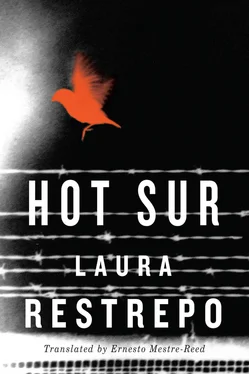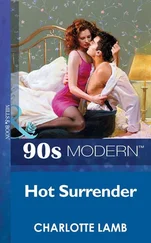“What is going to be the name of your e-mail address?” Rose wanted to know.
“What name?”
“The address you have to set up so he can write you, somethingorother at gmail dot com.”
“That’s perfect.”
“What’s perfect?”
“What you said, somethingorother at gmail dot com,” she said, not giving it a second thought, because she was hurrying to town to buy something.
“You’re kidding me,” Rose said flustered. “Do you need to go shopping at this moment? What the hell do you need?”
“Just this thing.”
“And you need it now? Are you nuts? This is no time for shopping.”
But she insisted, got her way, and took the Toyota to do her errands, leaving Rose time to return to Wendy Mellons, which didn’t turn out to be a horrible thing, after all, because he learned a few things that would come to be very helpful soon.
“It was an intense experience,” Rose tells me during our interview. “This getting closer and closer to the murderer of my son. Very hard, getting to know the people who were part of his life, seeing him in photographs, knowing he was on the other end of the telephone line, almost within reach.”
When they were alone in the car again, Rose asked María Paz what the big deal was, what the hell she had to buy so urgently at such a moment.
“A cheap backpack or something like that. And look, I found just what I needed, a red knapsack. You didn’t think I was going to hand over my Gucci bag to that old woman. No way! I put the money in the red knapsack, I’m keeping the Gucci.”
What did Wendy Mellons hope to get from all this? Basically, she would do a favor for a close friend, and maybe get a tip as gratitude for her services. As for Rose, his shameless purpose was to use the money as bait to get close enough to Sleepy Joe and bombard him with bullets. Up to that point, he had meekly gone along and approved whatever María Paz wanted, ceding the reins to her and playing dumb, the “ignorant old gringo” of the Molotov. But he had grown wary of that role. Now he needed to break out on his own and take firm steps. To begin, they snuck out of Wendy Mellons’s place, and he took María Paz to Monarch Mountain, a safe distance away. Their lodging was a ski resort that he had visited in the past with Edith and Cleve.
“I chose Monarch Mountain for a few reasons,” Rose explains to me. “First, I was sick and tired of driving all day and spending the nights in lousy motels. The plight of undocumented immigrants and the lower classes was no doubt interesting and very sad, but I had had enough. I wanted to sleep well, relax, eat well, and enjoy beautiful views from a hotel window. I was seized with a desire to spend my money liberally those last days, as simple as that.”
“I don’t understand,” I say. “You were about to murder a man…”
“Exactly.”
“Exactly?”
“Let me finish breaking it down for you. You asked me why I chose Monarch Mountain, and I told you the first reason. Second reason: I needed to keep María Paz distracted and clueless while I did my thing. More than once, she had told me she had always dreamed of going skiing, and I wanted to make sure that such a dream was fulfilled — so she would have at least one good memory of America before she left. Third reason: a guest is much safer and better protected in a five-star hotel than in some fleabag place by the side of the road.”
They checked into the best chalet available at the San Luis Ski Resort, a large Alpine hotel complete with cheese fondue and cuckoo clocks, fireplaces in the individual chalets, and yodeling and accordion performances on Saturday nights. A minibus shuttled guests to the slopes, which were fifteen minutes away. Lying on the bed of their room, there was a spectacular view of the Sangre de Cristo Mountains and of the surrounding forest crisscrossed by paths, on which they could take strolls with Otto, Dix, and Skunko. So there, in that ersatz Alpine hideaway, María Paz and Rose bided their time and waited for the handover of money, which would take place at some unspecified time whenever Sleepy Joe arrived in Colorado from wherever he was coming.
“The hotel offered dog care,” Rose tells me. “A crucial detail because it allowed me to leave the dogs in good hands while I took care of my business.”
Rose rented a full set of ski gear, clothing, and accessories for María Paz, reserved a whole set of private classes with a personal instructor, and while she took her first tentative steps on the magical white carpet, surrounded by the children also learning, he watched from the deck of Los Amigos Bar, seated under the outdoor heater, sipping on a frosty mug of beer, and picking at a plate of chorizo quesadillas with red sauce, because although the hotel was Swiss, the cuisine of choice at the food lounges was purely American-Mex. (“How fake can you get?” Cleve would have snipped.)
“I had never seen María Paz so happy,” Rose tells me. “Those endless expanses, with her hair blowing in the wind, must have felt like the opposite side of the world compared to Manninpox.”
“And were you also feeling good?” I ask. “Had you abandoned plans to off Sleepy Joe?”
“No, I never said that. What happened was that once I had dealt with the practical technicalities of the situation, it was simply a matter of waiting.”
“But you must have been twisting yourself into knots with fears and scruples and doubts.”
“None of that. Not even a little bit, actually. More like an astonishing sense of peace, quite astonishing, as the editorials said after Mandra X had told reporters about experiencing a similar feeling right before she murdered her children.”
Rose is careful to stress that those days were quite peaceful for him. He read the papers, was endlessly amused by the antics of María Paz on the small hill with the other beginners, enjoyed every sip of his frosty beers. Today, a couple of years later, as I interview him in the dining room of the Washington Square Hotel in New York City, I ask him to elaborate on why he thinks he was overcome by this astonishing sense of peace, as he calls it, because it is both a general and hyperbolic assertion that I’m just not buying. He replies that it was simple: Sleepy Joe had to die, he would die, and Rose did not feel there was anything wrong with that at all. He felt only relief, as if the air had become milder. He even came to the conclusion that the most burdensome aspect of committing such an act was physical and not moral at all. When it came down to it, it was almost natural to kill another person, something that was almost inconsequential: a few days before, he would never have suspected this, so he felt it was some sort of revelation. Despite the cold, the Colorado skies were radiant. A splendid dome of the purest blue was suspended above him, and he says he remembers thinking, there on the deck facing the slopes, that if all people had to do was push a red button to eliminate anyone who annoyed them, the human race would have perished.
I try to follow his reasoning, transcribing every sentence in my notebook word for word, so as not to distort what he is saying. I’m paying a heavy price for acceding to his request not to use a recorder; my hand is numb and swelled from all the frantic scribbling. But I can’t stop now; I don’t want to miss a single word, not at this stage. We are moving into delicate ground with damning revelations, and although Rose knows that I will not use real names or compromising details in my book, he begins to grow more evasive and restless. His responses, which up to this point were plentiful and flowing, suddenly seem to come as if carefully measured from a dropper. I have to extract them from him with my journalistic forceps. It is almost as if we have decided to switch roles, because now he is asking questions and I am responding — a technique we settle upon so that he can say what he has to say without saying it.
Читать дальше












